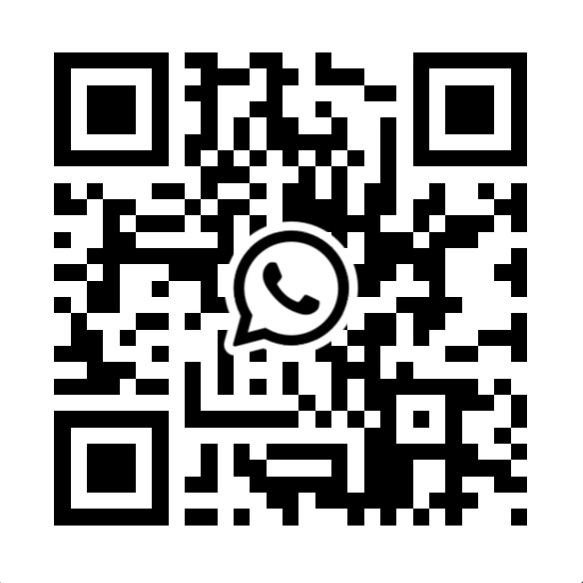Streamline Your Customs Process, Reduce Shipping Costs, and Boost Profitability
Do you know how to import from China to Kenya without stress, delays, or hidden fees? In this guide, you will learn every step you need to take for a smooth and profitable experience. By the end, you will know how to identify the right products, select trustworthy suppliers, handle shipping arrangements, and navigate Kenyan customs regulations.
Keep reading to discover how to lower costs, reduce risks, and accelerate your timeline.
I. Preliminary Steps: Define Your Product Strategy
1. Pinpoint Profitable Products
Before you start any import project, you need to research the Kenyan market. Ask yourself:
- What are Kenyans currently buying?
- Who else sells these items?
- How much margin can you make?
You can use B2B platforms like Alibaba to find product ideas. You can also explore B2C sites like AliExpress to compare pricing and product variety. In addition, try searching for terms like “China manufacturer of [product name]” in your web browser. This helps you discover factories that are not always listed on major platforms.
Use these steps to refine your product selection:
- Check demand: Read local forums, social media pages, and news to see what items are trending.
- Assess competition: Identify current sellers and their price ranges.
- Confirm profit potential: Estimate your total landing cost (production + shipping + customs fees + taxes).
A well-researched product is your best chance to succeed in the Kenyan market.
2. Find and Evaluate Suppliers
Once you know which product to import, you must locate reliable suppliers in China. You should:
- Ask for a product catalog: Verify their range, specifications, and product quality.
- Compare prices: Look at more than just the listed cost. Factor in shipping, duties, and other potential add-ons.
- Negotiate: Emphasize long-term partnerships. Mention potential larger orders to get better rates.
After you find a suitable supplier, request samples. Check the sample quality and consistency. This helps you avoid disappointments later.
II. Logistics and Agents: Key to a Smooth Supply Chain
1. Sourcing Agent (Optional but Helpful)
A sourcing agent acts as a middleman who knows the local Chinese market. They can:
- Bridge communication gaps: Handle language or cultural barriers.
- Inspect factories: Evaluate production quality on-site.
- Negotiate deals: Seek lower prices and favorable terms for you.
Hiring a sourcing agent is wise if you are new to importing, have limited time, or need extra support with supplier verification.
2. Freight Forwarder
A freight forwarder arranges shipping from China to Kenya. Common examples include Bansar, SINO Shipping, and Salihiya Cargo. A reputable freight forwarder will:
- Coordinate transport: Book container space or air cargo slots for you.
- Prepare paperwork: Handle export documents and shipping labels.
- Assist with customs: Ensure you follow all regulations in both China and Kenya.
3. Customs Clearing Agent
In Kenya, a customs clearing agent helps you with the necessary paperwork and fees upon arrival. They:
- Fill out import forms: Such as the Import Declaration Form (IDF) and Customs Entry.
- Calculate taxes: Make sure you pay duties, VAT, and other charges correctly.
- Avoid hold-ups: Resolve questions or disputes with Kenya Revenue Authority (KRA) officers quickly.
Working with professionals at each stage streamlines your import process.
III. Cost Breakdown: What You Need to Know
You cannot import from China to Kenya without considering all cost factors. Understanding each cost will save you from surprises later.
1. Air Freight Costs (USD/kg)
Air freight rates vary depending on weight, airline, and season. Common ranges are USD 4–20 per kilogram. Air shipping is best if:
- You have urgent or high-value items.
- You need fast delivery (3–7 days).
However, remember that air freight often carries extra fees such as fuel surcharges, insurance, and handling charges.
2. Sea Freight Costs (by CBM or FCL)
Sea freight is typically more cost-effective for bulk cargo. Your costs depend on:
- Volume or container: Pay by cubic meter (CBM) if you ship less than a container load (LCL). Or pay a flat rate for a full container (FCL).
- Routes and ports: Fees can vary by carrier or shipping line.
A common ballpark rate is Ksh. 55,000–60,000 per CBM (subject to change). Sea transport may take 30–45 days to arrive at Mombasa Port.
3. Kenyan Import Taxes
Kenya Revenue Authority (KRA) applies taxes based on commodity codes (HS codes):
- Customs Duty: Typically 0–35% depending on the product.
- VAT: 16%, calculated on the total (CIF + Customs Duty).
- Import Declaration Fee (IDF): 3.5%.
Accurate HS code classification is vital. If you misclassify, you risk penalties, fines, or delays.
IV. Choosing Between Sea Freight and Air Freight
1. Sea Freight
Advantages:
- Lower costs for large or heavy shipments
- Suitable for non-urgent or bulky goods
Disadvantages:
- Longer transit time (about 30–45 days)
- Possible port congestion and demurrage fees
2. Air Freight
Advantages:
- Quick delivery (3–7 days)
- Lower risk of damage
Disadvantages:
- Much higher cost per kilogram
- Not suitable for goods with low profit margins or large dimensions
Consider both methods carefully. If speed matters more than cost, pick air freight. Otherwise, sea freight usually offers better profit margins for high-volume imports.
V. Documents and Compliance: Mandatory Paperwork
To clear your cargo smoothly, you must prepare these key documents:
- Import Declaration Form (IDF)
- Required by KRA before shipment.
- Must be paid in advance to avoid delays.
- Customs Entry
- Filed upon arrival.
- Indicates CIF value, HS code, and duties.
- Certificate of Conformity (CoC)
- Ensures your products comply with Kenyan safety and quality standards.
- Typically issued by SGS, Intertek, or other authorized agencies.
- Commercial Invoice
- Lists product description, unit prices, payment terms, and supplier details.
- Import Standards Mark (ISM) (if needed)
- Some regulated goods (e.g. electronics) need KEBS approval.
- Pro Forma Invoice
- Used for preliminary costing and financial arrangements.
- Packing List
- Details quantities, weights, and dimensions of each package.
- Helps customs verify contents.
- Bill of Lading / Air Waybill
- Evidence of the transport contract.
- Necessary for cargo release at the final destination.
Always check for consistent data across these documents. Inaccuracies can trigger penalties or further inspections.
VI. Restricted and Prohibited Imports
1. Restricted Imports
Certain items need special permits to enter Kenya. Examples include:
- Firearms
- Pharmaceutical products
- Used clothing (requires KEBS approval)
If you plan to import restricted goods, first get the relevant licenses. Consult local authorities and confirm the exact requirements.
2. Prohibited Imports
Kenya does not allow certain items at all, such as:
- Counterfeit currency
- Dangerous chemicals (forbidden by law)
- Plastic bags below a certain thickness
Importing prohibited goods can lead to severe legal consequences, including hefty fines or jail time. Always review Kenya’s banned items list.
VII. Final Steps: Shipping and Receiving Your Goods
Below is a streamlined checklist for importing goods from China to Kenya. Use it to stay on track.
- Avoid Chinese Holiday Delays
- Factories often shut down during major holidays like Chinese New Year and Golden Week.
- Place orders well in advance.
- Quality Inspection
- Arrange third-party inspections or rely on your sourcing agent.
- Confirm product quality and packaging before shipping.
- Proper Packaging and Labeling
- Use sturdy, moisture-proof materials.
- Clearly mark the consignee name, address, and phone number.
- Deliver Goods to Warehouse and Clear Chinese Customs
- Your freight forwarder or supplier will handle export licenses, bills, and other documents.
- Pay Import Fees
- Budget for freight charges, customs duty, VAT, and IDF.
- Clear these fees promptly to avoid delays.
- Load and Ship
- The freight forwarder books container or air cargo.
- Obtain your Bill of Lading (B/L) or Air Waybill (AWB).
- Arrival in Kenya
- Seaborne cargo lands at Mombasa Port.
- Air cargo arrives at Jomo Kenyatta International Airport.
- Kenyan Customs Clearance
- Your clearing agent submits the IDF, CoC, and Customs Entry.
- KRA checks your documents and calculates final duties.
- Transport to Your Warehouse
- Use trucks or rail to move goods inland.
- Sign any waybills or receipts for recordkeeping.
- Stock and Sell
- Perform a final inspection.
- List or distribute your goods in the Kenyan market.
VIII. FAQs
1. How much does it cost to import from China to Kenya?
It depends on the product category, shipping method, and volume. You will pay:
- Product cost (supplier’s price)
- Freight charges (sea or air)
- Taxes and duties (0–35% duty, plus 16% VAT)
- Import Declaration Fee (3.5%)
2. Which shipping method is the cheapest?
For large or bulky goods, sea freight is the cheapest. Air freight is faster but costs more per unit of weight or volume.
3. Who are reliable shipping agents from China to Kenya?
Popular freight forwarders include Bansar, SINO Shipping, DFH Logistics, Salihiya Cargo, and many others. You can also consider global container carriers like Maersk, CMA CGM, and COSCO.
4. How do I buy from Alibaba and ship to Kenya?
You:
- Select a supplier and confirm product details.
- Negotiate price, shipping terms, and payment.
- Arrange shipping through a freight forwarder (sea or air).
- Prepare documents for Kenyan customs.
5. How can I ensure product quality?
Ask for samples or factory certifications. You can also hire a sourcing agent or a third-party inspection service to visit the factory and verify quality before shipping.
Conclusion: Take Action Now
Now you know exactly how to import from China to Kenya and manage every stage of the process. You have a clear idea of how to select products, compare shipping options, prepare documents, handle customs, and avoid costly mistakes.
Remember these key points:
- Plan around Chinese holidays to prevent production or shipping delays.
- Calculate total landing costs and keep an eye on duties and taxes.
- Use professional agents for sourcing, freight, and customs if you need extra expertise.
- Ensure compliance with Kenyan regulations (CoC, IDF, and relevant HS codes).
If you are still unsure, start with a small test order. Learn from the process and then increase your volume gradually. With the right research, planning, and professional support, you can thrive in the Kenyan market.
Feel free to reach out if you have more questions or want deeper insights. Wishing you success in your import journey from China to Kenya!



